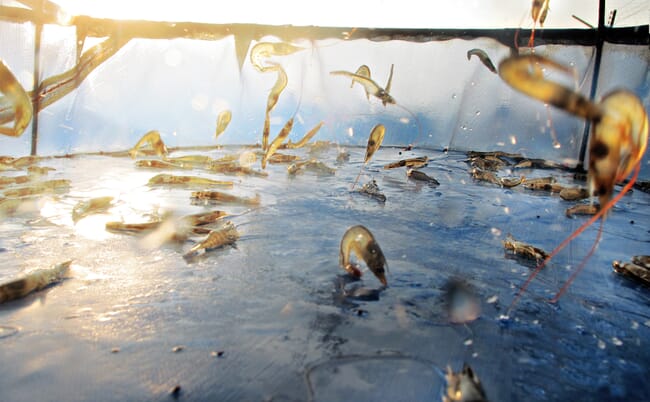
According to the Aquatic Life Institute, which helped to create the policy, “it reflects the increasing consumer demand for significant welfare considerations and commitments, and will likely inspire other retailers to follow their lead”.
Deadlines will vary for each target, but specific commitments include:
- Tesco will not sell any live decapod crustaceans in stores and online.
- By 2026, 100 percent of its farmed Penaeus vannamei shrimp will be electrically stunned. Tesco also affirms that it is exploring the practicalities of implementing this across its P. monodon supply chains with suppliers.
- 100 percent of the suppliers will have to comply with recognised farm assurance schemes (certifiers), such as ASC, Global GAP or BAP 4.
- 100 percent of the suppliers must achieve a forage fish/oil dependency ratio of <1 by 2030.
- 100 percent of shrimp broodstock used to produce the post-larvae for Tesco must be ablation-free by 2026 (Penaeus vannamei) or 2027 (Penaeus monodon).
“Tesco is committed to continuous improvement in animal welfare within the markets and supply chains we operate in. As well as our market-leading ‘Tesco Welfare Approved’ audit programme, we wanted to go further in stipulating our minimum welfare requirements for farmed decapods. It is our hope that, in doing so, we can play our part in the continued improvement and development of these crucial supply chains. We couldn’t have achieved this without the continued support from partners such as Aquatic Life Institute amongst others and our key supplier partners,” said Ben Lambden, sustainable fisheries & aquaculture manager at Tesco.
Tesco has also received support and advice from other organizations in the creation of this policy. Aquatic Life Institute was able to support by advising Tesco on aquatic animal welfare, sharing science-based resources to support their decision-making progress, and providing feedback to policy draft. This work is part of Aquatic Life Institute’s Corporate Initiative, launched in 2023, which aims to assist large-scale buyers in integrating animal welfare considerations into their procurement practices.
Similar policies have been previously adopted by Waitrose and Marks & Spencer.
“Tesco’s public commitment to ensuring high welfare throughout the lifecycle (farming to slaughter) of farmed decapod crustaceans in their supply chain, is a bold and significant step towards recognizing the sentience of these animals,” said Sophika Kostyniuk, managing director of Aquatic Life Institute. “This policy will no doubt ignite a positive ripple effect across the retail world, and we applaud Tesco’s leadership on this matter.”
